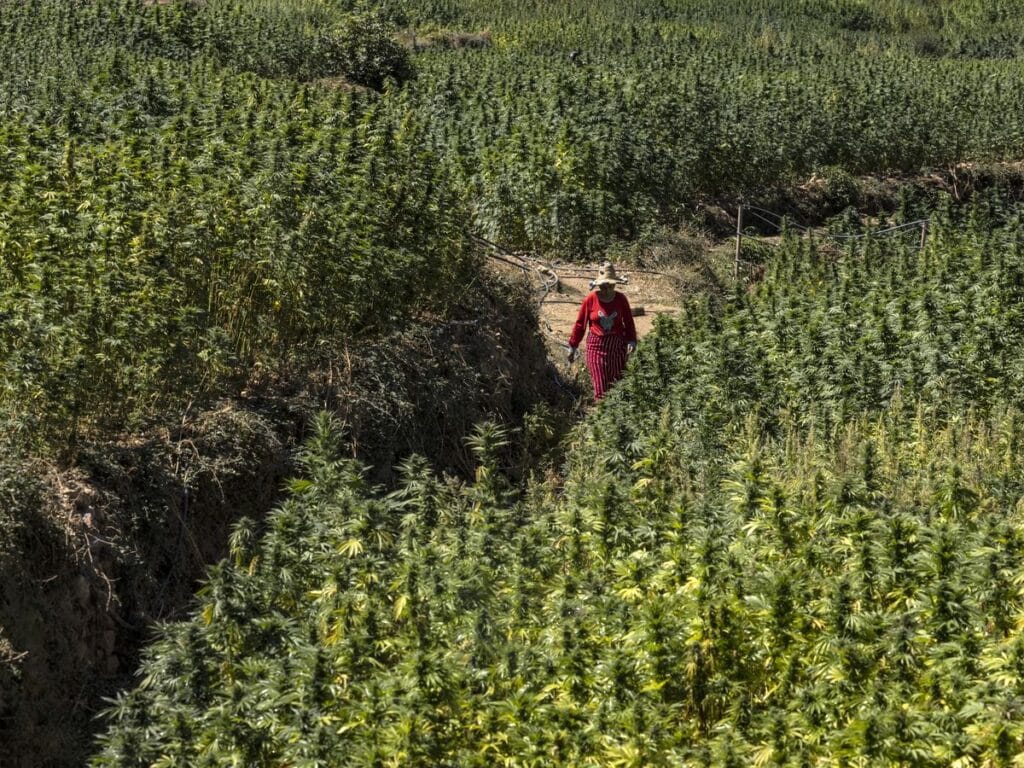In the heights of the province of Taounate, a silent crisis is hitting the inhabitants: **drinking water sources are drying up at an alarming rate**, jeopardizing daily life, agriculture, and livestock. The cause, according to several testimonies and local officials: **the anarchic exploitation of water resources by cannabis producers**, particularly in the municipality of Tbouda.
A grab at the expense of vital needs
As temperatures regularly exceed 40°C, many douars have access to drinking water for only two hours a day, via public reservoirs that empty quickly. The Aoudor river, the main supply point for the region, is now dry. **Kif crops, on the other hand, continue to expand**, fueled by powerful pumps, often hidden, operating continuously, to the detriment of the residents.
**Mfadel Ghaidouni**, a municipal councilor, denounces a situation that has become unbearable: “The municipality does not even benefit from the national rural drinking water supply program, and our resources are being diverted before our eyes.”
Illegal exploitation, tolerated by the authorities?
Illegal well drilling in riverbeds, unauthorized pumping, use of bulldozers to access groundwater… these practices are known, visible, and denounced. Yet, **the lack of reaction from the authorities fuels a sense of abandonment**, even implicit complicity.
“This blatant diversion of a common good undermines the principle of social justice, especially since access to water is a fundamental right,” emphasizes the newspaper *Assabah*. **Images of queues at public fountains, or of women and children traveling miles to fill a few jerrycans, are becoming commonplace.**
A law regulating cannabis… but without effect
Morocco has adopted a law aimed at legalizing and regulating cannabis cultivation for medical and industrial purposes. But **on the ground, this regulation seems to have been circumvented**: predatory and informal practices persist, taking advantage of ambiguity, even local laxity.
Instead of regulating, the law seems to have facilitated, in some cases, **the illegal intensification of production**, often carried out by actors who do not respect either the quotas or the sustainable methods outlined by the new regulatory framework.
A threat to socio-economic balance
In Tbouda, **the local economy still largely relies on livestock farming**. However, without water to hydrate the animals, this activity is threatened with collapse. Added to this are the growing social tensions between farmers and residents, fueled by **a sense of injustice and helplessness in the face of the scarcity of such a vital resource**.
If the situation persists, **it risks provoking rural exodus**, even social unrest, in a region already marked by economic difficulties.
An alarm signal for resource management
The case of Tbouda illustrates the glaring limits **of the current management of water resources in Morocco**, in an increasingly acute national water stress context. It is no longer just a matter of scarcity, but **a structural diversion of priorities**, where the essential needs of the population are sacrificed in favor of lucrative but unsustainable crops.
**Social urgency, ecological urgency:** the authorities are called to action. The population, in turn, is waiting for concrete measures.
With Assabah


